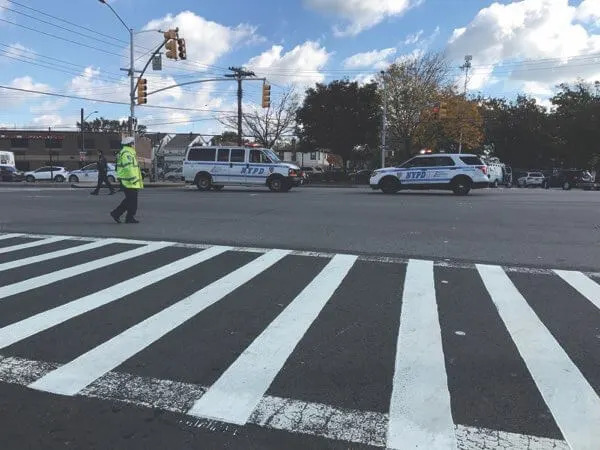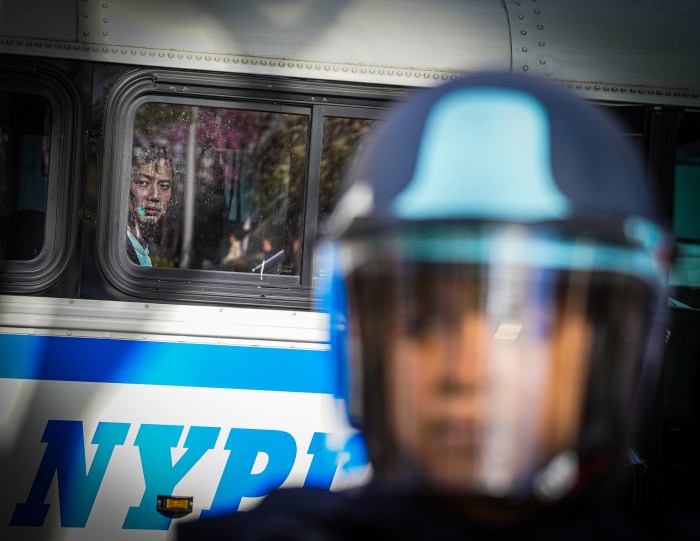By Daniel Massey
Sparked by an increase in complaints about overcrowded housing, Borough President Helen Marshall last week reconvened a controversial task force that drew the ire of Richmond Hill’s Indo-Caribbean immigrants when it recommended toughening laws against illegal conversions in 1999.
The Illegal Conversion Task Force, launched by former Borough President Claire Shulman in 1997, met July 2 for the first time since February. In 1999 it had promoted legislation to increase the city’s power in fighting illegal conversions, a move that upset many Indo-Caribbeans who thought they were being unfairly targeted.
“The most serious problem created by illegal conversions is the threat of losing lives due to fires started by overloaded and inadequate electrical systems,” said Marshall. “The insidious spread of these apartments also causes additional strains on municipal services and overcrowded schools.”
According to Dan Andrews, the borough president’s spokesman, the task force developed plans at its meeting last week to increase the borough’s power against property owners who squeeze three and four apartments into homes designed for one and two families:
• It will examine ways to increase the access of Buildings Department inspectors to apartments suspected of being illegal.
• It will look into legislation that would require real estate brokers to provide buyers with a list of what is legal and what is illegal to do in the houses they purchase.
• It will work with Con Edison to develop a way for them to refuse the installation of additional utility meters if the certificate of occupancy does not allow for additional ones.
• It will hold a series of four workshops where legal and architectural professionals will show homeowners how to legally convert apartments.
“We’re not interested in throwing people into the streets,” said Andrews, who noted the number of complaints to the borough president’s office about illegal conversions has risen in recent months. “What we don’t want them doing is living in a cellar that’s unsafe.”
Indo-Caribbean activists expressed disappointment in the revival of the task force, though they said the workshops were a good idea.
“If it is a task force to recommend enforcement and punitive measures, then it’s a wicked act,” said attorney Kawal Totaram, of the Queens Caribbean Bar Association.
According to Buildings Department statistics, most complaints about illegal conversions come from the Richmond Hill and Ozone Park neighborhoods that are home to many of the borough’s Indo-Caribbean immigrants.
In fiscal year 2001, Community Board 9, which covers Richmond Hill, Kew Gardens, Woodhaven and parts of Ozone Park, had 1,740 illegal conversion complaints, the most in the borough. Community Board 10, which covers Ozone Park, South Ozone Park, Howard Beach and Lindenwood, was next at 1,540. Together, the two boards accounted for 32 percent of all borough complaints.
Indo-Caribbean activists say zoning codes are outdated and that illegal apartments are not necessarily dangerous. They contend many immigrant families depend on the rental income to pay their mortgages or allow grandparents to live with them to help with child care.
“A family could be a husband and wife, a brother, sister and in-laws,” said Leyland Roopnaraine, an Indo-Guyanese activist and Richmond Hill real estate broker. “People of Indo-Caribbean origins tend to live very closely compared to other ethnic groups. Home ownership and family ties take priority in the Indo-Caribbean world.”
Roopnaraine and others promised a fight “bigger than ever” against the crackdown on illegal conversions, which he said would force many Indo-Caribbean people to sell their homes. He expressed dismay at Marshall, who is of Guyanese descent, for promoting the task force.
Meanwhile, real estate sources said homeowners are coming up with new, more secretive ways to convert their apartments. Many no longer install extra utility meters, mailboxes and doorbells, which are telltale signs of illegal conversions, sources said.
Others, according to Buildings Department spokeswoman Ilyse Fink, simply do not answer the door when inspectors call.
“We are having a lot more difficulty getting in,” she said. “People know if the inspector rings the bell they don’t answer or they refuse access. Access has certainly become more of a problem for us.”
Roopnaraine said these inspections are a waste of taxpayer money. He said Indo-Caribbeans “pay a whopping amount of taxes” in Richmond Hill and Ozone Park and that they have revitalized the neighborhoods. He noted rents along Liberty Avenue are five times higher than they were a decade ago.
“Instead of looking at illegal conversions the borough president would be better off looking at providing homes for people,” he said. “She should focus on facilitating new construction.”
Andrews said the borough president recognizes the ultimate solution to the illegal conversion problem is to build more affordable housing. He said there are a “number of projects in the pipeline,” but that in the interim, illegal conversions must be stopped for the safety and quality of life of all borough residents.
Reach reporter Daniel Massey by e-mail at Timesledger@aol.com or call 229-0300, Ext. 156.





























